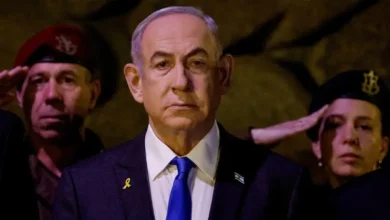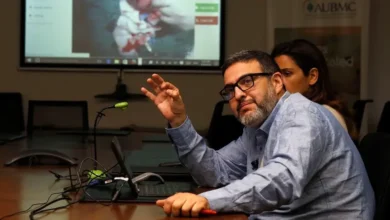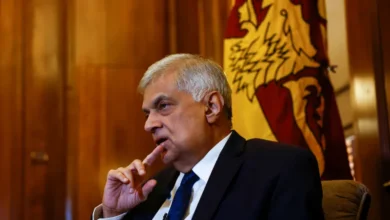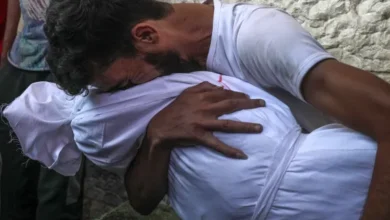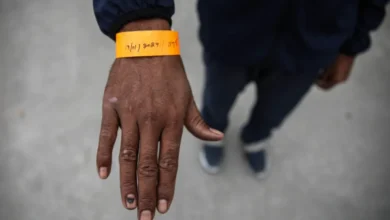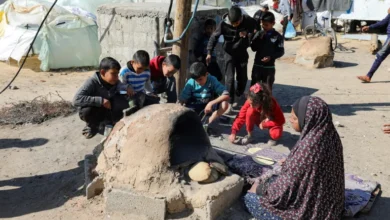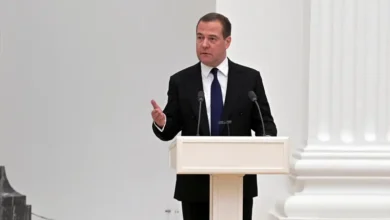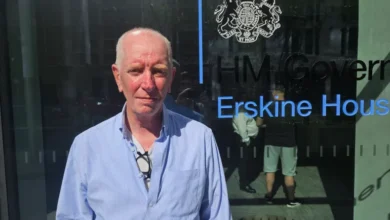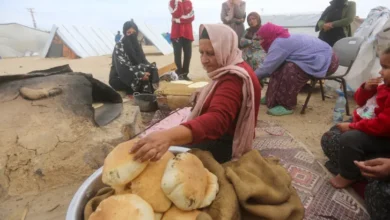‘Beautiful board’: How chess saved an Indian village from alcohol, gambling
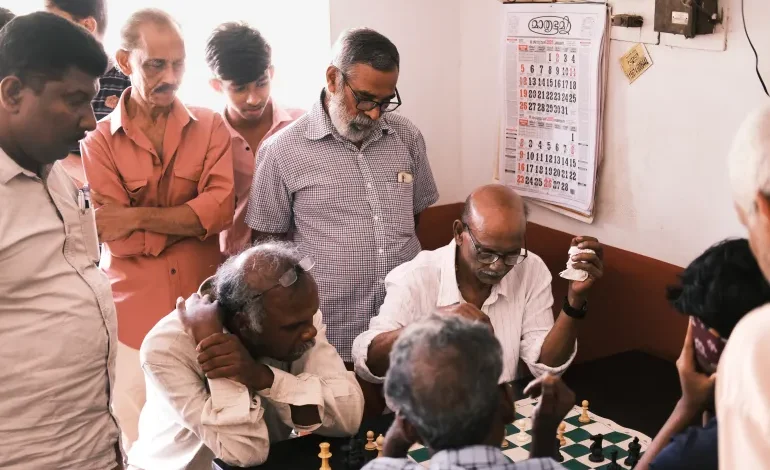
Phones, wallets and half-drunk teacups clutter empty tables – except for one – at a teahouse in southern India, where a crowd has formed around a chess board and two competitors.
One of them is 15-year-old Gowrishankar Jayaraj. Surrounded by spectators vying for a view of the chess board, Jayaraj is competing blindfolded.
Playing blind from the game’s opening means the teenager must visualise, maintain and update a mental model of the board, as moves from both players are communicated aloud by a designated referee.
Jayaraj is playing a much older Baby John, whose expression is taut with discomfort. His shrinking shoulders and pursed mouth betray that he is a handful of moves away from losing his fourth game in nearly 40 minutes.
“Gowrishankar is just 15 and already something of a chess prodigy. He beats me even when he is blind,” says John.
‘Chess Village of India’
Jayaraj and John are residents of Marottichal, a sleepy village of nearly 6,000 residents located at the foot of the Western Ghats in the picturesque Thrissur district of India’s Kerala state.
In the early 2000s, Marottichal became known by the chess community in Kerala as the “Chess Village of India” because at least one person in every household here is believed to be chess-proficient. Across the village, people regularly sit across chessboards, competing in the shade of bus stops, outside grocery shops and on the playground.
“More than 4,500 people here – or 75 percent – of the village’s 6,000 residents are proficient players,” says John, who is also the president of Marottichal’s Chess Association.
Jayaraj is currently ranked within India’s top 600 active chess players, according to the World Chess Federation (FIDE), and hopes to add to India’s growing stature as a global leader in the sport.
In September, India swept the Open and Women’s gold medals at the 2024 Chess Olympiad. Then, the country’s youngest-ever grandmaster, Gukesh Dommaraju, 18, won the World Chess Championship in December. And Grandmaster Koneru Humpy capped off a victory-laden year for India after she won the FIDE Women’s World Rapid Chess Championship the same month.
Jayaraj, who currently holds a 2012 rating by FIDE, hopes to follow in the footsteps of Indian heroes like Viswanathan Anand and Dommaraju, and become a grandmaster.
His dream reflects the long journey Marottichal has taken to break from a reputation very different from the one it currently relishes.
‘King and saviour’
Four decades ago, the village was in the grip of an alcohol addiction and gambling crisis that was pushing many families to the verge of ruin.
In the 1970s, three Marottichal households were brewing nut-based alcohol for personal consumption. But by the early 80s, the village had become a regional hub for illicit alcohol production.
“People weren’t just drinking, they were brewing and selling liquor in their houses every night,” Jayaraj Manazhy, a resident of the village – unrelated to Gowrishankar Jayaraj – tells Al Jazeera.
The trade flowed between villages with Marottichal as the source of the alcohol.
But farming families began to neglect their livestock and crops. With diminishing returns from the land, villagers soon turned to gambling through card games at the liquor production houses, from where bookies also operated.
A lack of regular income and the reliance on alcohol saw many families fall into poverty.
“Young children were left without clothes to wear. Others were starving,” says another local, who requested anonymity. There seemed to be no hope for an end to the epidemic.
Until Charaliyil Unnikrishnan, a local resident-turned-exile, returned to Marottichal in the late 1980s.
Unnikrishnan had been shunned by his family for joining a Maoist movement in his youth. He gave up the movement and returned in his early 30s to set up a teahouse in the heart of the village.
But the influence alcohol held over his village perturbed the former rebel. “It was a dark time back then for our community,” he recalls to Al Jazeera.
Unnikrishnan decided to act.
He assembled a small group of friends whom he had known from his teenage years in the village and began networking with the wives and mothers of the liquor producers who were angered by their husbands and sons for spearheading production.
Over the course of months, Unnikrishnan received isolated tip-offs about brewing times, which usually took place long into the night. Unnikrishnan and his friends would raid the houses where alcohol was being produced and stored, destroying hidden supplies and the equipment used to produce it.
Sometimes, they were met with resistance, but Unnikrishnan had amassed support from the other villagers who were desperate for change. The producers, with declining demand and little means to restart their enterprise, were outnumbered.
After the raids, Unnikrishnan would invite members of the community to play chess.
“The game brought us together. We started talking about it more and more, and people would meet to play rather than drink,” says John, who secured funding from other villages to create regional tournaments and successfully campaigned for chess to become part of the curriculum in both the lower and upper primary schools in the village.
“We truly started to piece together our lives around this beautiful board,” he says.
At his shop, Unnikrishnan served the villagers not just tea, but also his vision of a future free of alcohol addiction. And that, he told them, could be done through chess, an ancient game of strategy believed to have originated in India.
Soon, people engrossed over a chess board became a common sight across the village.
Meanwhile, cases of alcohol addiction and gambling began to decline in the village. Families, once devastated by the bottle, instead huddled together around a chess board, competing against loved ones for the high of a checkmate.
“Before we knew chess, many [of us] were listless,” says Francis Kachapilly, a recovered alcoholic, as he stands alongside Unnikrishnan at the teahouse watching Jayaraj and John play.
“We didn’t have a focus. Chess gave us something new.”
